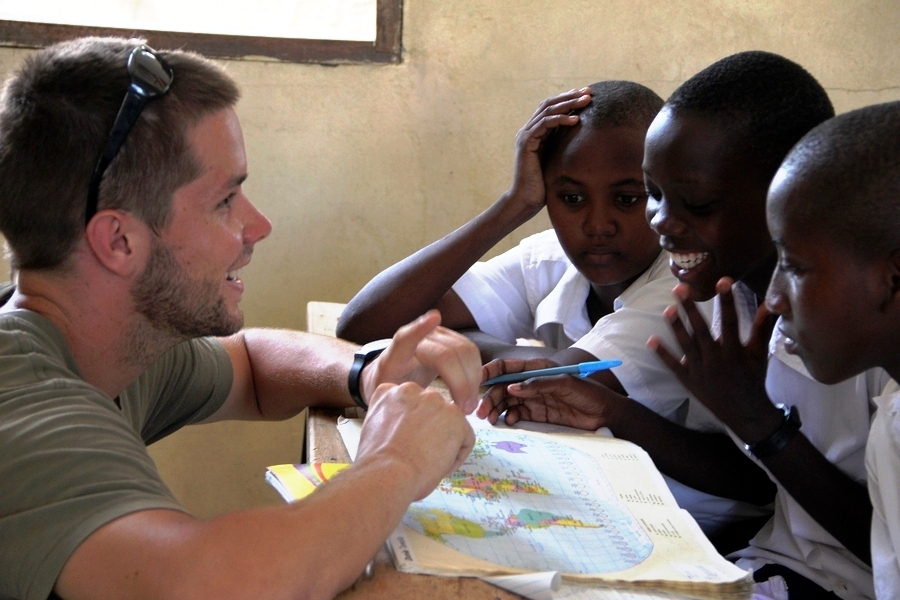
Children represent over 50% of the population, but in terms of budget allocations, children welfare is still relegated to the private sphere of the family, community and NGOs and remains politically marginalized from the mainstream concerns of the governance and economic policy.
There is significant economic growth in some sectors, particularly mining and tourism but very little growth in Agriculture sector on which most children and their families depend.
Opportunities missed in childhood, such as good nutrition and education, can cause irreversible harm and trap children in long term poverty. Poverty at household level and very low level of investment in basic infrastructure such as schools and health care facilities or transport for economic activities makes life hard for children in Tanzania.
The only way out of poverty is through education. This goes of course even more for orphans. Children are very much aware that being able to speak English is essential to their future prospects and they are eager to learn.
English is a common language in Tanzania because the country once was a British colony. However, there is a lack of quality English education. If you choose to teach, don’t expect Western standards with premade educational materials, tight schedules and so on.
You must make it up as you go. You may also assist with sports, music, drawing lessons, games and other activities.
Public schools close during the following periods:
June 15th – July 27th
Sep 19th – Oct 10th
Dec 15th – Jan 1st
During these periods it is possible to teach at a private school or at an orphanage instead.
Training center for disadvantaged teenage girls
We work with a local NGO who runs a school for young teenage girls. The girls are selected through a number of different networks and are either recovered from the forced labor- or sex trade, abandoned by their families or
have escaped abusive relationships. Many of the young girls already have children of their own.
The goal of the NGO is to provide the girls with a hope for a better future and teach them skills that allow them to become self-supporting and take care of their children. At the moment the NGO helps young and vulnerable women from the Arusha-, Moshi- and Kilimanjaro region.
The girls stay at the school for 6-12 months. Here they are taught skills such as tailoring, cooking, English and computers. This will help them get a job, e.g. in the catering sector or the hotel business.
Volunteer tasks can be:
· Teaching English.
· Developing handcraft skills.
· Teach Computer Skills and maintain computers.
· Assist in the cooking classes.
Depending on your own capacities and experiences, you can suggest other skills. The girls are very eager to learn.
Internships
Most of the projects mentioned here accept internships. Send an e-mail to info@globalsafaris.dk explaining your wishes and the requirements of your school counselor and we will find out, where you fit in best.
Program prices in $USD.
|
Volunteer period |
Cost USD $ |
|
|
|
| Less than 1 week | 300.00 |
| 1 week | 350.00 |
| 2 week | 450.00 |
| 3 week | 450.00 |
| 4 week | 500.00 |
| 5 week | 550.00 |
| 6 week | 600.00 |
| 7 week | 650.00 |
| 8 week | 700.00 |
| 9 week | 750.00 |
| 10 week | 850.00 |
| 11 week | 900.00 |
| 12 week | 950.00 |
Each extra week after 12-weeks we charge $80usd
Included in the price
Not included in the fee
Excursions
During weekends you can participate in shorter excursions like for example a visit to “Arusha National park”, the closest national park to Arusha town. Arusha National Park is often overlooked by safari goers, despite offering the opportunity to explore a beguiling diversity of habitats within a few hours.
If the start dates for the excursion do not fit with your volunteer work stay, the coordinator can arrange a break in your volunteer job, so you can return to work after the safari or trek.